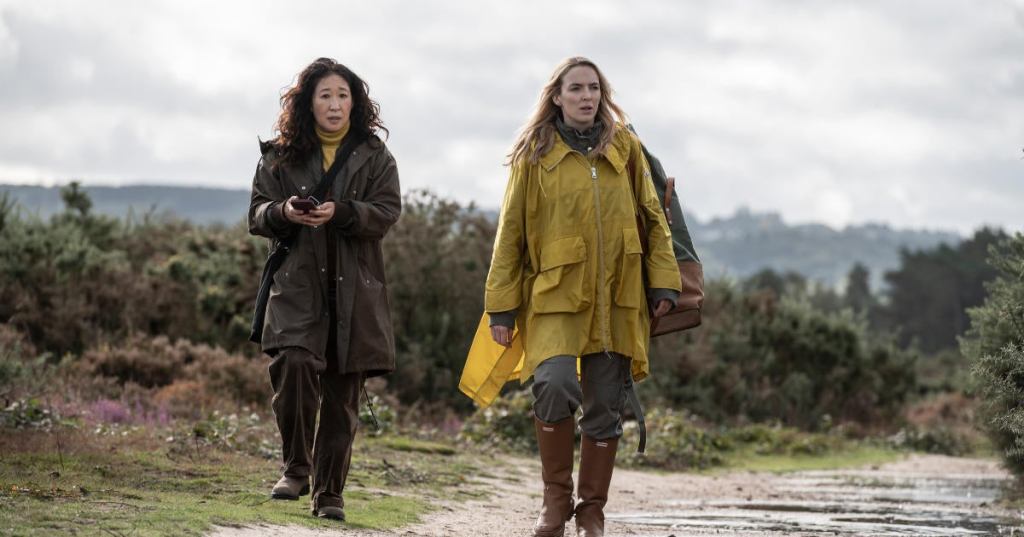Luke Jennings has spoken out following the controversial Killing Eve series finale.Jennings, who authored the Codename Villanelle trilogy on which the BBC America series is based, slammed the series for “bowing to convention” and “punishing” the same-sex love story between Eve and Villanelle in a column for The Guardian published on April 22. Warning: This story contains spoilers for Killing Eve Season 4.
Jennings began the opinion piece by reflecting on the process of bringing his books to life, sharing that “it’s a thrill having your work adapted for TV” and applauding the “compelling” performances from Sandra Oh and Jodie Comer. However, while Jennings wrote that “it’s an extraordinary privilege to see your characters brought to life so compellingly,” he admitted that “the final series ending took me aback.” In the final moments of the series, Villanelle was shot dead in front of Eve just minutes after she finally took down The Twelve and just after she and Eve shared their first kiss.
Videos by PopCulture.com
Although Jennings acknowledged that “you’re never going to love everything the screenwriting team does,” he said the series finale betrayed not only fans, but also the characters at the heart of the show. Jennings recalled how “when Phoebe Waller-Bridge and I first discussed Villanelle’s character five years ago, we agreed that she was defined by what Phoebe called her ‘glory’: her subversiveness, her savage power, her insistence on lovely things. That’s the Villanelle that I wrote, that Phoebe turned into a screen character, and that Jodie ran with so gloriously.” The Season 4 finale, Jennings said, was instead “a bowing to convention. A punishing of Villanelle and Eve for the bloody, erotically impelled chaos they have caused.”
The author noted that a “truly subversive storyline would have defied the trope which sees same-sex lovers in TV dramas permitted only the most fleeting of relationships before one of them is killed off,” citing the controversial death of Lexa on The 100 back in 2016, which sparked widespread outcry and a call for change and an end to the use of the “bury your gays” trope. He went on to ask, “how much more darkly satisfying, and true to Killing Eve‘s original spirit, for the couple to walk off into the sunset together?”
Jennings went on to note that or many young people living difficult and isolated lives, a show such as Killing Eve can be a lifeline. He shared that throughout the show’s run, numerous LGBT fans have reached out to him, with one “young gay woman living in Russia” writing Jennings to share that “no TV writers can take [Villanelle] away because she’s ours – all of ours – and thanks to your books and our love she will live on forever.”
Although fans likely can’t expect to see Villanelle back on the screen given her tragic ending, Jennings did offer fans a bit of hope. The author ended his message by writing, “I earned the outcome of the final episode in advance, and suspected, rightly, that fans would be upset. But to those fans, I would say this: Villanelle lives. And on the page, if not on the screen, she will be back.





